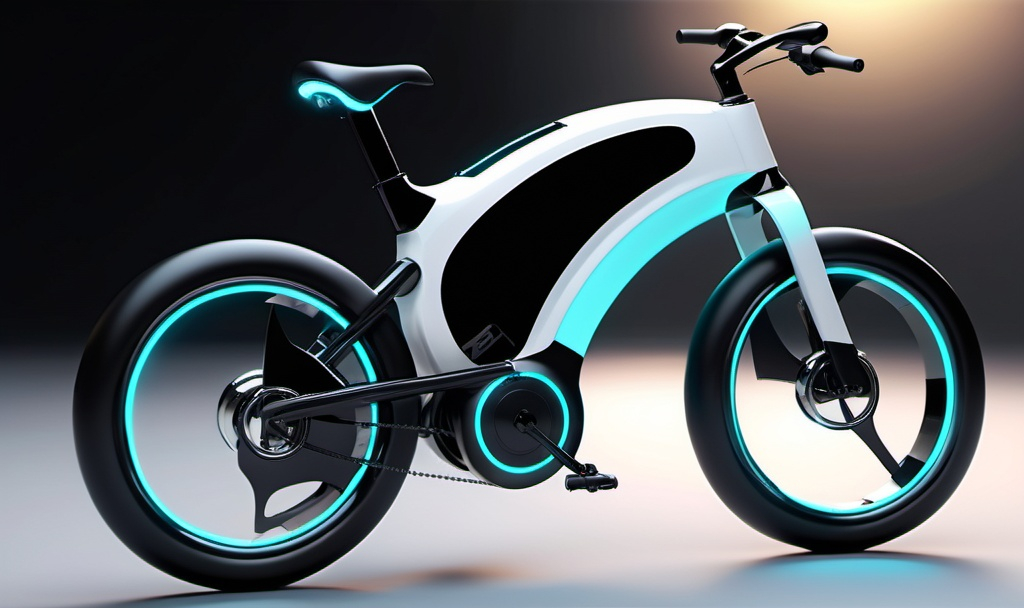lectric bikes (ebikes) have evolved dramatically in recent years, transforming from simple pedal-assist bikes into sophisticated machines equipped with cutting-edge technology. These futuristic ebikes are not only eco-friendly but also boast features that enhance convenience, safety, and connectivity. In this article, we’ll explore the latest technological advancements in ebikes and how these innovations make them an exciting choice for urban and recreational riders alike.

What Makes a Futuristic Ebike?
Futuristic ebikes integrate advanced technologies, from powerful motors to intelligent software, offering users a seamless and enjoyable ride. Here are a few standout features that define modern ebikes:
- **Advanced Motor Systems:** New-generation ebikes feature efficient, quiet motors that provide impressive torque and smooth acceleration.
- **Integrated GPS and Navigation:** With built-in GPS, riders can enjoy seamless navigation and even track their rides.
- **Smart Connectivity:** Many ebikes now connect to smartphones, allowing riders to monitor speed, battery life, and even receive maintenance alerts.
For an in-depth look at the latest ebike technologies, visit Electric Bike Technologies.
Latest Battery Technology in Ebikes
Battery technology plays a crucial role in determining an ebike’s range, power, and overall usability. Here are some recent advancements in ebike batteries:
- **Higher Capacity Batteries:** New lithium-ion batteries offer increased capacity without adding significant weight, allowing for extended rides.
- **Faster Charging Times:** Some ebikes now feature rapid charging, reducing downtime and making them more convenient for daily use.
- **Battery Management Systems (BMS):** Advanced BMS protects against overheating, overcharging, and extends battery life, ensuring reliable performance.
For more on battery advancements and what’s in store for future ebikes, check out Rize Bikes' Blog on Ebike Innovations.
2024 Ebikes Are Here and Surprisingly Affordable
Despite incorporating the latest tech, 2024 ebikes are becoming more affordable as manufacturers scale production and streamline components. Here’s why ebikes are now accessible to a broader audience:
- **Mass Production Efficiencies:** With ebike popularity rising, manufacturers are able to reduce costs through larger production volumes.
- **Simplified Designs:** Many brands have simplified ebike designs to minimize maintenance and lower costs, making ebikes a viable option for more people.
- **Incentives and Rebates:** Government incentives and rebates in many areas encourage ebike adoption, making them even more affordable.
For an overview of affordable ebike models and how they’re impacting sustainable transport, read this article from Virginia Tech.
Drive Systems: The End of Chains?
Traditionally, ebikes have relied on chains and sprockets, but digital drive systems are beginning to replace these mechanical components. Here’s why this shift is gaining attention:
- **Digital Drive Technology:** These systems replace traditional chains with electronic drives that improve efficiency and reduce wear and tear.
- **Maintenance-Free Riding:** Without chains, ebikes require less maintenance, reducing the cost and time involved in upkeep.
- **Smoother Power Delivery:** Digital drives provide seamless, quiet power delivery, making rides smoother and more enjoyable.
To learn more about this innovative shift in ebike design, visit InsideEVs’ article on digital drive technology.
Smart Safety Features in Futuristic Ebikes
Safety is a priority for modern ebikes, and new technology has made riding safer than ever. Here are some advanced safety features seen in recent ebike models:
- **Automatic Lights:** Integrated lights activate in low light conditions, ensuring visibility without the need for manual control.
- **Anti-Lock Braking Systems (ABS):** ABS in ebikes prevents wheel lock-up during sudden stops, reducing accidents.
- **Collision Warning Systems:** Some ebikes are equipped with sensors that warn riders of obstacles or potential collisions, enhancing road awareness.
These features contribute to a safer riding experience, especially for urban cyclists. For more on innovative safety features, visit Electric Bike Technologies.
Enhanced Connectivity and User Control
Connectivity has transformed ebikes into smart machines that can interact with riders’ devices. Here’s how connectivity is enhancing the ebike experience:
- **App Integration:** Smartphone apps allow riders to monitor speed, battery levels, and routes, providing a personalized riding experience.
- **Remote Diagnostics:** Connected ebikes can alert users about potential issues, helping prevent breakdowns and prolonging the life of the bike.
- **Firmware Updates:** Manufacturers can push firmware updates directly to connected ebikes, ensuring riders have the latest features and safety enhancements.
For an in-depth look at ebike connectivity trends, read Rize Bikes’ article on ebike technology.
Environmental Impact of Futuristic Ebikes
Ebikes are not only convenient but also a sustainable alternative to traditional transportation. Here’s how they contribute to a greener planet:
- **Reduced Emissions:** Ebikes produce zero emissions, reducing reliance on gas-powered vehicles and lowering carbon footprints.
- **Efficient Energy Use:** Ebikes consume less energy than cars or motorcycles, making them an eco-friendly option.
- **Extended Lifespan of Batteries:** Modern battery technology ensures ebikes last longer with fewer replacements, reducing waste.
Ebikes are a vital part of the future of green transportation. Read more on this topic at Virginia Tech’s sustainability article.
Challenges Facing Ebike Technology
Despite their advantages, ebikes still face challenges, including:
- **Battery Longevity:** Battery degradation remains an issue, though technology is rapidly advancing to combat this.
- **Infrastructure Needs:** Many cities lack adequate bike lanes or charging stations, limiting ebike usability in urban areas.
- **High Initial Costs:** While prices are decreasing, high-quality ebikes with advanced features can still be expensive upfront.
Overcoming these challenges will be key to further popularizing ebikes as a mainstream transportation option.
Future Trends in Ebike Technology
The future of ebikes is bright, with anticipated developments making them even more appealing. Here’s a look at potential future trends:
- **Solar Charging:** Ebikes may soon have solar panels integrated into their frames, providing a renewable charging option.
- **Automatic Gear Shifting:** AI-driven gear shifting can adjust resistance and speed based on terrain, enhancing ride comfort.
- **Lightweight Frames:** Advances in materials like carbon fiber could make ebikes lighter and more energy-efficient.
For more predictions on future ebike tech, visit Rize Bikes’ Future Innovations article.
Conclusion: Embrace the Future with Cutting-Edge Ebikes
Futuristic ebikes equipped with the latest technology offer a seamless blend of convenience, connectivity, and eco-friendliness. From smart safety features to digital drives and high-capacity batteries, these bikes redefine transportation for urban commuters and adventure seekers alike. As technology advances, ebikes will continue to evolve, making them an increasingly viable option for sustainable and smart transportation.
To explore the latest in ebike technology, check out Electric Bike Technologies or learn about future innovations at Rize Bikes.




